2015 Events Archive
| Date | Event | Speakers |
|---|---|---|
| April 10 | Family Business & Entrepreneurship: Successes & Challenges | Paolo Zegna, Marchesa Tiziana Frescobaldi, John Hadjipateras |
| April 15 | The World of Dante: Between Science & Poetry | Riccardo Pratesi |
| April 27 | A Sustainable & Healthy Lifestyle: from Challenges to Innovations | Professor Joel E. Cohen, Professor Roberto Reali, Dr. Camillo Ricordi |
| May 28 | Panel Discussion on “Rethinking the History of Philosophy within an Intercultural Framework” | Professor Tu Weiming, Professor Riccardo Pozzo, Professor William Blattner |
| September 10 | The Etiology of Autism: from Synapses to Biomarkers | Dr. Thomas Südhof, Dr. Antonio Persico |
| October 13 | Personalized Medicine and Cancer | Dr. Antonio Iavarone, Dr. Alessandro Olivi, Dr. Rebecca B. Riggins |
| November 3 | Global Challenges for a Sustainable Economic Development | Professor Enrico Giovannini, Ruth Greenspan Bell |
Global Challenges for a Sustainable Economic Development
Tuesday, November 3, 2015, at 4:30 p.m.
Intercultural Center Auditorium, Georgetown University
The symposium/discussion will address the challenges facing sustainable global economic development that will require a data revolution, global environmental protection, policy issues as well as ethical and technical concerns.
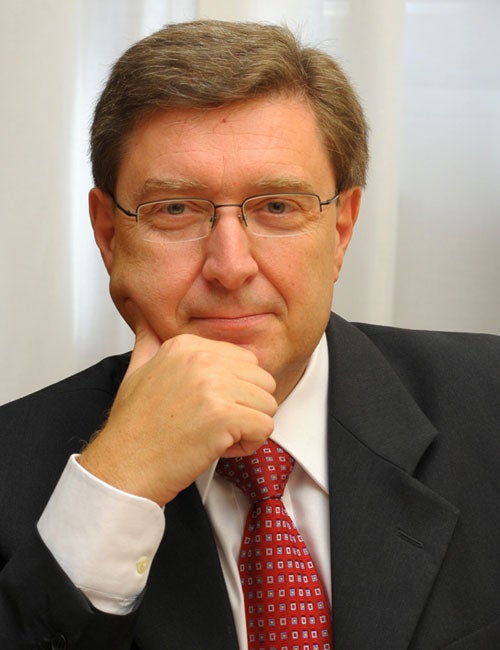
Professor Enrico Giovannini
Professor of Economic Statistics
Department of Economics and Finance (DEF)
University of Rome “Tor Vergata”
Enrico Giovannini is an Italian economist and statistician, a member of the Club of Rome. Since 2002 he is a professor of economic statistics at the Rome University “Tor Vergata”. From 28th April 2013 to 22 February 2014 he was the Minister of Labour and Social Policies in the Italian Government. From August 2009 to April 2013 he was President of the Italian Statistical Institute (Istat). From January 2001 to July 2009 he was Director of Statistics and Chief Statistician of the Organization for Economic Co-operation and Development (OECD), where he established the “World Forum on “Statistics, Knowledge and Politics” and launched the Global Project on the “Measurement of Progress in Society”, which fostered the setting up of numerous worldwide initiatives on the issue “Beyond GDP”.
He is a Senior Fellow of the LUISS School of European Political Economy, Vice-president of the High-Level Group on Competitiveness and Growth of the European Council, Co-Chair of the “Independent Experts Advisory Board on Data Revolution for Sustainable Development” established by the UN Secretary-General, member of the European Statistical Governance Advisory Board (ESGAB) responsible for supervising the functioning of the European Statistical System, member of the “Commission Économique de la Nation” established by the French government, member of the Council of the International Statistical Institute and of boards of several Italian and international institutions.
He was a member of the Stiglitz-Sen-Fitoussi Committee, established by French President N. Sarkozy, President of the Global Council of the World Economic Forum on the “Evaluation of Societal Progress” and of the Conference of European Statisticians, the body of the UN Economic Commission for Europe. In October 2014, the President of the Italian Republic made him “Cavaliere di Gran Croce al Merito della Repubblica”, the highest-ranking honor of the Italian Republic. He is the author of more than ninety articles and four books on economic and statistical topics.
Abstract
The Data Revolution for Sustainable Development: Ethical, Technical and Policy Issues
The year 2015 presents a historic and unprecedented opportunity to bring the countries and citizens of the world together to embark on new paths to improve people’s lives everywhere and the state of the ecosystems. The decisions taken in September by the leaders of the world with the Agenda for sustainable development will shape the global course of action to end poverty and promote prosperity and well-being for all while taking into account environmental and resource limits and tackling climate change.
The approval of the Sustainable Development Goals (SDGs) and the Agenda to reach them by 2030 is only the first step in a long process to transform our world and its implementation will require a fundamental change in the cultural and political approaches followed so far. In particular:
- The new framework (including the “no one left behind” principle) finally makes clear that development means much more than economic growth measured in terms of per capita GDP, sustainability means much more than environmentally compatible, and inequality means much more than fair income or wealth distribution.
- The SDGs cover a wide range of topics, from social (health, poverty, education, gender balance, etc.) to economic (production and consumption, jobs, energy, etc.), from environmental (climate change, water, ecosystems, etc.) to governance (accountable institutions, policy coordination, transparency, effectiveness, etc.). Therefore, the new perspective needs to be reflected in a policy framework that encompasses all dimensions of SD, and ways need to be identified to strongly embed the long-term perspective in the decision-making of governments, businesses and people.
- The SDGs also mark a shift in the economic and political relationships between developing, emerging, and developed countries, where the boundaries between them are becoming increasingly blurred and the priorities they pursue are more and more universal. This requires significant rethinking of not only international cooperation policies but also domestic ones.
In conclusion, the SDGs pose new challenges to both domestic and international policies, which can be clustered in three groups: domestic policies to be pursued by all countries to improve their national conditions (human rights, education, health, equality within nations, etc.); domestic policies and actions that have an impact on other regions and countries(consumption and production patterns, GHG emissions, resource use, agriculture and fisheries, environmental pollution, etc.); international policies (development cooperation, trade, financial systems, etc.).
Ruth Greenspan Bell
Public Policy Scholar Woodrow Wilson International Center for Scholars,
Research Associate Center for Decision Sciences, Columbia Business School
Visiting Scholar, Environmental Law Institute
Ruth Greenspan Bell is Public Policy Scholar at the Woodrow Wilson International Center for Scholars, Research Associate, at the Center for Decision Sciences, Columbia Business School, and Visiting Scholar at the Environmental Law Institute. With a long-standing focus on the governance aspects of managing pollution and greenhouse gas emissions, she is co-leader (with Elke Weber of Columbia University) of a program to harvest insights from behavioral social science research to demonstrate how to re-motivate how humans engage with energy. Previously, she was Senior Fellow and Director of the US Climate Policy Objective at the World Resources Institute; directed International Institutional Development and Environmental Assistance at Resources for the Future (working to build more effective systems of environmental protection globally; producing, for example, a highly acclaimed study of the policy process and changes –including the switch of all commercial vehicles from petrol and diesel to CNG — that led to improvements in air quality in Delhi); Senior Advisor to the Assistant Secretary of State for Oceans and International Environmental and Scientific Affairs; and in various management positions in U.S. EPA’s Office of General Counsel for domestic law.
In 2007-2008, Bell established the conditions under which the Polish Foreign Ministry appointed an experienced diplomat to the position of Climate Ambassador, in preparation for the Polish hosting of the UNFCCC negotiating meeting (COP 14) in Poznan; thereafter, she built and managed a Polish Task Force to support the work of the Ambassador. Bell publishes extensively about environmental governance and climate change, addressing policy and environmental audiences (Foreign Affairs, Issues in Science and Technology, Georgetown International Environmental Law Review, Environment, Environmental Forum, Environmental Law Reporter, and Harvard International Review among the periodicals; chapters in various books; and as co-author of Building International Climate Cooperation, Lessons from the weapons and trade regimes for achieving international climate goals). Bell serves on several boards and is a long-standing member of the Council on Foreign Relations. – See more at: http://www.topwonks.org/experts/ruth-greenspan-bell/#sthash.J3Yw0tPY.dpuf
Abstract
Getting to Yes on Climate Change; an Alternative to the UNFCCC Process
The most important current sustainability exercise is the attempt to control greenhouse gas emissions through the UNFCCC (United Nations Framework Convention on Climate Change) climate negotiation process. The difficulty is that this is an all-or-nothing approach, involving a huge (and growing) basket of complex issues, too easily derailed by the views or actions of a handful of countries, which then become the rationale for other countries to refuse to act. Although many are optimistic about the results in Paris 2015 in view of pledges already made, the persistence of the stalemate thus far and the urgency of the problem demand that we consider diversifying. One alternative is to open more lines of discussion and communication and to show that smaller measures of progress can be achieved, as stepping stones toward bigger ones. This could happen within the UNFCCC or in other venues. An interesting model is found in the progress that has been made in global negotiations to control weapons of mass destruction.
Additional Material
Moderator

Dr. Luca Anderlini
Professor of Economics
Georgetown University
Dr. Luca Anderlini gained his first degree in Statistical Sciences in Rome. He then moved to Cambridge England where he obtained an MPhil and then a Ph.D. in Economics. From 1986 to 1999 he held Faculty positions in Cambridge. After two years at Southampton University in the UK, he joined Georgetown University as a Full Professor in the Department of Economics. Professor Anderlini has also held Visiting Faculty appointments at Harvard, Yale, the University of Pennsylvania, and the London School of Economics. In Italy, he has held visiting appointments at LUISS Guido Carli (Rome), Collegio Carlo Alberto (Turin), and EIEF (Rome). Luca Anderlini is the author of numerous scholarly publications in leading Economics journals. His research interests range from pure and applied Game Theory to Contract Theory and Law and Economics. More recently, he has taken an interest in the emerging field of Behavioral Economics.
Personalized Medicine and Cancer
Tuesday, October 13 2015 at 6:00 p.m.
Embassy of Italy Auditorium
3000 Whitehaven Street NW Washington, DC
Speakers

Dr. Antonio Iavarone
Department of Neurology and Institute
for Cancer Genetics,
Columbia University, New York, NY
Dr. Antonio Iavarone received his medical degree in Pediatrics from the Catholic University in Rome, Italy. He focuses on translational research of pediatric tumors, in particular those that derive from the nervous system. Currently, he is a Professor of Neurology, Pathology, and Cancer Genetics at Columbia University in New York where he directs an internationally known research laboratory known for significant discoveries of malignant brain tumors in children and adults. In recent years Dr. Iavarone’s Laboratory has identified the molecular mechanisms and the proteins that cause malignancy of brain tumors and has discovered that these mechanisms represent deviations of behavior that normally operate in stem cells. The latest discoveries have identified the molecular mechanism responsible for aggressive glioblastoma, the most malignant human tumor. The researchers, coordinated by Dr. Iavarone, are now utilizing these findings to generate new therapies for brain tumors in children and adults
Abstract
The Road to the Future: Personalized Therapy of Cancer
We are experiencing the exciting time of the genome era. For our work, this means being able to contextualize the alterations of each genetic network in the natural environment of a specific tumor and identify the key driving modules on which specific tumor subgroups rely for growth, survival, and progression. With this information in hand, we can target the critical alterations with specific drugs, often already available for other types of diseases. By focusing on one of the most lethal forms of human tumors, the glioblastoma multiforme (GBM), we have been able to make incredible progress along this line in the last two years. The therapeutic implication of this work has been our ability to efficiently target the master regulators of this disease in preclinical mouse models with the consequent collapse of the mesenchymal signature and extended survival [1]. More recently, we have identified the first examples of highly oncogenic and recurrent gene fusions in GBM, target their dependency in a particular tumor subtype, and observed dramatic anti-tumor effects. Recurrent gene fusions in GBM result in the constitutive activation of receptor tyrosine kinase genes (FGFR, EGFR, and NTRK1) that render tumors addicted to the driver events [2, 3]. Among them, the FGFR-TACC gene fusion is the addicting oncogenic event with the highest therapeutic value. First, are recurrent oncogenic events in several types of human cancer besides GBM (head & neck, lung, bladder, etc.). Second, FGFR-TACC fusions are potent oncogenes that transform normal cells by activation of non-canonical substrates and precipitation of aneuploidy. Finally, human tumors harboring FGFR-TACC fusions acquire marked sensitivity to FGFR inhibitory compounds. It is not surprising that this line of investigation has matured toward clinical trials [4]. The integrated computational-experimental pipeline that we developed plus our ability to functionalize any genetic brain tumor module was recently applied to the entire landscape of CNVs, somatic mutations, and gene fusions of human GBM. This information is quickly advancing our ability to translate each new genetic finding into the personalized context of the clinical setting.
References
- Carro MS, Lim WK, Alvarez MJ, Bollo RJ, Zhao X, Snyder EY, et al. The transcriptional network for mesenchymal transformation of brain tumors. Nature 2010,463:318-325.
- Frattini V, Trifonov V, Chan JM, Castano A, Lia M, Abate F, et al. The integrated landscape of driver genomic alterations in glioblastoma. Nat Genet 2013,45:1141-1149.
- Singh D, Chan JM, Zoppoli P, Niola F, Sullivan R, Castano A, et al. Transforming fusions of FGFR and TACC genes in human glioblastoma. Science 2012,337:1231-1235.
- Sanson M, Idbaih A. Neuro-oncology: Novel molecular targets in the treatment of glioblastoma. Nat Rev Neurol 2013,9:612-613.
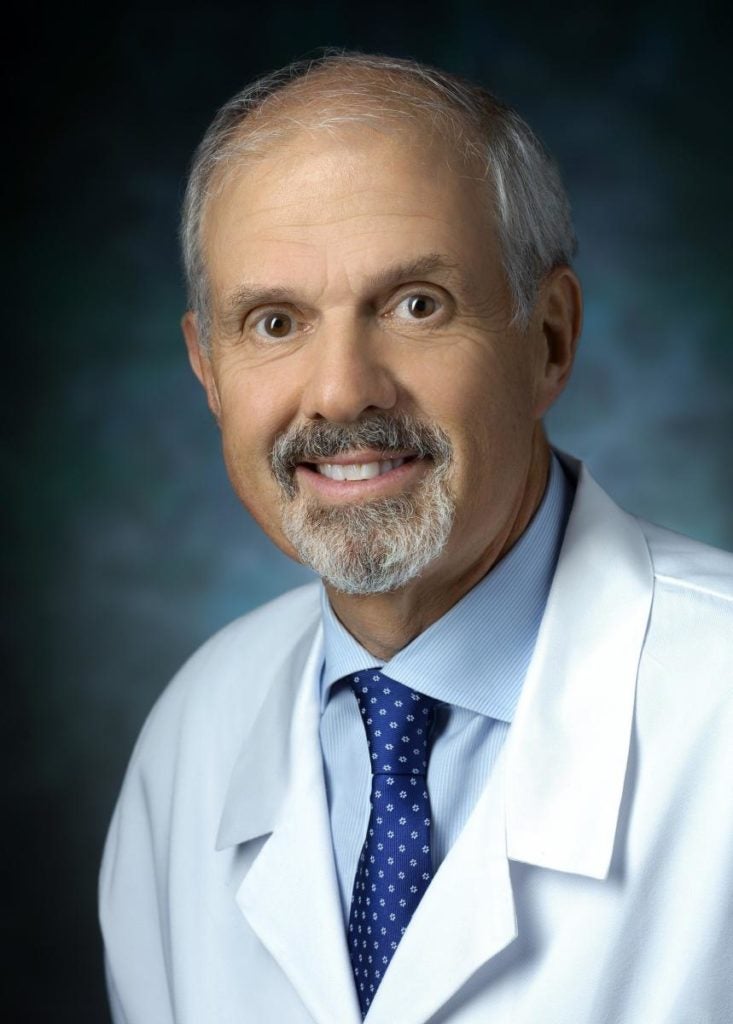
Dr. Alessandro Olivi
Professor of Neurosurgery and Oncology
Chairman of Neurosurgery, Johns Hopkins Bayview Med. Ctr. Director of Neurosurgical Oncology, Johns Hopkins Univ.
Professor and Chairman of Neurosurgery,
Catholic University & Policlinico “A. Gemelli,” Rome
Dr. Alessandro Olivi received his medical degree from the University of Padova, Italy. He completed his Residency at the University of Cincinnati-Good Samaritan Hospital in 1988. He then completed a Fellowship in Neurosurgical Oncology at the Johns Hopkins Hospital. He has been a member of the Neurosurgery and Oncology Faculty at Johns Hopkins University since 1991. He is currently a Professor of Neurosurgery and Oncology and the Director of the Division of Neurosurgical Oncology. He is also the Chairman of the Department of Neurosurgery at the Johns Hopkins Bayview Medical Center. Dr. Olivi specializes in the surgical treatment of tumors and vascular lesions of the brain and spinal cord. His ongoing research activities are focused on the development of new treatments for brain tumors such as local delivery systems and applied nanotechnologies for advanced therapies. He has vast experience in treating the most complex lesions of the brain, brainstem, skull base, and spinal cord, utilizing state-of-the-art surgical technologies. In addition, he directs and coordinates a number of multicenter clinical trials to test novel and promising therapies for brain tumors.
Abstract
Individualized Surgical Treatment of Patients Affected by Brain Tumors & their Participation to Clinical Trials
The treatment of malignant brain tumors remains a formidable challenge. However, recent advances in our understanding of the biological nature and the genetic signatures of these tumors associated with the refinement of our surgical, imaging, and anesthesia techniques, have allowed us to develop highly personalized treatments for patients affected by this disease. A description of the selected application of these advanced techniques (including functional MRIs, awake procedures, and intraoperative images) in a number of exemplified cases will be presented. In addition, the importance of completing rigorous clinical trials to provide rapid answers to the ongoing quest for more effective treatments of malignant brain tumors will be emphasized.

Dr. Rebecca B. Riggins
Department of Oncology
Lombardi Comprehensive Cancer Center
Georgetown University, Washington, DC
Dr. Rebecca Riggins received her undergraduate training in Biochemistry from Hood College, followed by a Ph.D. in Microbiology from the University of Virginia. She is currently an Assistant Professor in the Department of Oncology at Georgetown University’s Lombardi Comprehensive Cancer Center. Dr. Riggins’ research program is focused on elucidating the function of estrogen-related receptors (ERRs) in breast and brain cancers, using a range of cellular/molecular, translational, and bioinformatic approaches. Her laboratory’s long-term mission is to translate knowledge of the cellular and molecular functions of ERRs in cancer into actionable therapeutic approaches.
Abstract
Estrogen-Related Receptors: Novel Therapeutic Targets in Glioblastoma
Glioblastoma (GBM) is a highly aggressive brain tumor that is resistant to most conventional chemotherapies. In our current era of ‘omics’-directed medicine, in-depth characterization of GBMs has identified subtypes with defining molecular features, but this effort has not yet led to dramatic improvements in survival through targeted therapy.
Alternative splicing is a key driver of phenotypic diversity and plasticity in cancer cells. While it is increasingly clear that different isoforms of several genes are associated with cancer progression and metastasis, there is a fundamental gap in knowledge of splice variants that contribute to tumor suppression in a tissue-specific fashion.
Estrogen-related receptor beta (ERRbeta) is an alternatively spliced orphan nuclear receptor whose activity can be regulated by synthetic small molecules. We have found that ERRbeta copy number gain and high levels of ERRbeta mRNA are associated with significantly longer survival time in patients with GBM. We recently published that two splicing isoforms of ERRbeta have distinct effects on cell death and cell cycle progression and that a compound that activates ERRbeta has anti-cancer activity in cellular models of GBM while sparing non-tumor cells. Our ongoing studies seek to define how ERRbeta alternative splicing affects GBM biology and provide important proof-of-concept for the therapeutic exploitation of ERRbeta splice variants as druggable targets in GBM.
Moderator
Dr. Subha Madhavan
Director, Innovation Center for Biomedical Informatics Georgetown University Medical Center; Director, Clinical Informatics, Lombard Comprehensive Cancer Center
Dr. Madhavan is the Founding Director of the Innovation Center for Biomedical Informatics (ICBI) at the Georgetown University Medical Center and Associate Professor of Oncology. She is a world-class leader in data science, clinical informatics, and health IT who is responsible for several biomedical informatics efforts including the Georgetown Database of Cancer (G-DOC) a resource for both researchers and clinicians to realize the goals of personalized medicine, the NCI In Silico Research Center for Excellence, and co-directs Lombardi Cancer Center’s Biostatistics and Bioinformatics shared resource. She leads the Biomedical Informatics program of the Georgetown-Howard Universities CTSA. In this role, she has enabled access to over 2.5 million patient records from 10 MedStar Health hospitals to translational researchers. More recently, she has partnered with the FDA on the Center for Excellence in Regulatory Science program to develop evidence bases for pharmacogenomics and vaccine safety. She has contributed to novel information sciences findings in research articles published in journals such as Nature, Bioinformatics, Molecular and Cell Biology (MCB), AJPM, Frontiers in Oncology, Bioinformatics, Cancer Informatics, and Molecular Cancer Research (MCR).
The Etiology of Autism: from Synapses to Biomarkers
Thursday, September 10, 2015, at 6:00 p.m.
Intercultural Center Auditorium, Georgetown University
Speakers
Dr. Thomas Südhof
2013 Nobel Prize Winner of Physiology; Avram Goldstein Chair Professor of Molecular and Cellular Physiology, Stanford University School of Medicine
Dr. Südhof is the Avram Goldstein Chair Professor of Molecular and Cellular Physiology, at Stanford University School of Medicine. Dr. Südhof, a native of Germany, obtained his MD degree from the University of Göttingen in 1982 and performed the work for his doctoral thesis at the Max-Planck-Institut für biophysikalische Chemie in Goettingen under the direction of Prof. Victor P. Whittaker. From 1983-1986, Dr. Südhof trained as a postdoctoral fellow with Drs. Brown and Goldstein at the Department of Molecular Genetics at UT Southwestern and elucidated the structure, expression, and regulation of the LDL receptor gene. Subsequently, Dr. Südhof served on the faculty of UT Southwestern in Dallas until 2008, where he–among others–was the founding chair of the Department of Neuroscience.
Since 2008, Dr. Südhof is the Avram Goldstein Professor in the School of Medicine at Stanford University. Dr. Südhof is also an investigator of the Howard Hughes Medical Institute, and a member of the National Academy of Sciences, the Institute of Medicine, and the American Academy of Arts and Sciences. Dr. Südhof’s research interests focus on the physiological and pathological mechanisms operating on the synapse, in particular on how synapses form, how they transmit signals, and how they become abnormal during diseases such as Alzheimer’s disease and autism. His studies have identified key molecules in synapses, such as synaptotagmins as the calcium sensors for neurotransmitter release, Munc18 as a major fusion protein at the synapse, and neurexins and neuroligins as central trans-synaptic cell adhesion molecules. One of the major current interests in his laboratory is to elucidate the relation of synaptic activity to synapse loss and neurodegeneration in Alzheimer’s disease. He has won several awards for his work, most recently the Nobel Prize in Physiology or Medicine in 2013.
Abstract
Towards a Molecular Understanding of Autism Pathogenesis: The Synapse and Beyond
Neurexins are presynaptic cell-adhesion molecules that interact trans-synaptically with a variety of postsynaptic ligands. These interactions mediate trans-synaptic signaling. By contributing to shaping the properties of synapses in a given circuit, such signaling controls the overall properties of this circuit. Neuropsychiatric disorders such as autism are poorly understood despite high incidence rates, but recent progress in human genetics, revolutionized by advances in sequencing technologies, has identified mutations in a large number of genes that predispose to autism. No common theme unites the affected genes, but a subset of these genes encodes proteins that function at the synapse, including notably neurexins and several of their ligands. In my presentation, I will discuss the state of the field in understanding how neurexins mediate trans-synaptic signals, and how neurexin-based signaling becomes impaired in autism.
Neural circuits process information by transmitting and computing signals at synapses. Neural circuits thus critically depend on the number and location of synapses between the neurons of that circuit and on the properties of their synapses. We hypothesize that these parameters of synapses are determined by interactions between pre- and postsynaptic cell-surface recognition molecules and/or signaling molecules, and we refer to the rules that these molecules impose on circuits as the molecular logic of neural circuits. Several cell-surface and signaling molecules that contribute to the molecular logic of neural circuits have been characterized, most prominently presynaptic neurexin cell-adhesion molecules and their various postsynaptic ligands. Although neuropsychiatric disorders such as autism and schizophrenia are poorly understood, recent progress in human genetics, revolutionized by advances in sequencing technologies, has identified mutations in a large number of genes that predispose to autism and schizophrenia. No common theme unites the affected genes, but several of these genes encode proteins that function at the synapse, including notably the neurexins. We thus further hypothesize that at least a subset of autism and schizophrenia syndromes are produced by specific impairments in the molecular logic of neural circuits, such that the input/output relationship in particular circuits is shifted, resulting in a skewed information processing capacity of the brain for a selected set of tasks. In support of this latter hypothesis, we observed that specific autism- and schizophrenia-associated gene mutations in neurexins and their ligands cause selective alterations in a subset of synapses and circuits and that these alterations induce discrete, specific behavioral abnormalities. Although the analysis of the molecular logic of neural circuits and of the impaired circuit logic in neuropsychiatric disorders is only at the beginning, the conceptual framework that we sketch out in this project might allow a better understanding of how brain circuits process information and how such information processing becomes altered in autism and schizophrenia.
Neural circuits process information by transmitting and computing signals at synapses. We hypothesize that interactions between pre- and postsynaptic cell-surface recognition molecules, such as neurexins, determine the molecular logic of neural circuits, that a subset of autism and schizophrenia syndromes are produced by impairments in this molecular logic, as evidenced by neurexin mutations in autism and schizophrenia. These hypotheses provide a conceptual framework for understanding neural circuits in the brain and their impairment in neuropsychiatric disorders.
Neural circuits process information by transmitting and computing signals at synapses. We hypothesize that interactions between trans-synaptic cell-surface molecules, such as neurexins, determine the molecular logic of neural circuits, and that some autism and schizophrenia syndromes are produced by impairments in this molecular logic, as evidenced by neurexin mutations in autism and schizophrenia, thereby providing a conceptual framework for understanding neural circuits in health and disease.
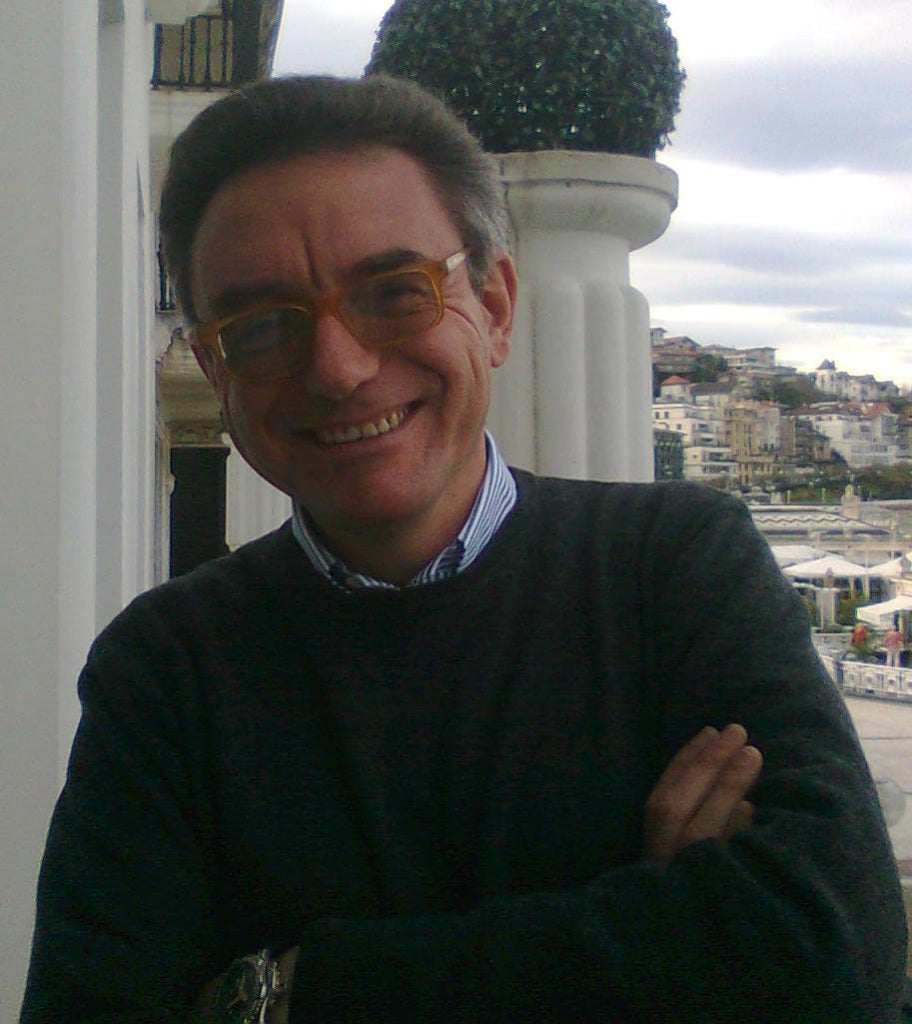
Dr. Antonio Persico
Professor of Child & Adolescent Neuropsychiatry
at University Campus Bio-Medico (Rome) and Scientific Director of the Mafalda Luce Center for Pervasive Developmental Disorders (Milan) Italy
Antonio M. Persico was born in Augusta (SR), Italy, on January 23, 1962. He is married to Patrizia and has one 21-year-old son, Matteo. Prof. Persico graduated from the Catholic University Medical School in Rome (Italy) in 1986 and at the same University, he completed his residency program in Psychiatry in 1990. Between 1989 and 1994 he worked clinically and scientifically in the field of drug addiction including a 3-year fellowship at the Addiction Research Center (NIDA/NIH) in Baltimore, MD, where he worked in George Uhl’s lab on the genetics of drug addiction and on the mechanisms underlying amphetamine-induced brain plasticity. In 1994 he was in Milan at S. Raffaele Hospital Department of Psychiatry working on the genetics of panic disorder until 1995 when he moved to University Campus Bio-Medico (Rome, Italy). Until 2001, while working in the Department of Physiology (Lab. of Neuroscience) directed by Flavio Keller, his major research interests were the mechanisms underlying serotonin-mediated plasticity in the mammalian brain and the genetics of autistic disorder. Since 2001 he directs the Lab. of Molecular Psychiatry and Neurogenetics at UCBM, which focuses on autism and has frequently collaborated with Pat Levitt’s lab. In 2010 he became Head of the Child & Adolescent Neuropsychiatry Unit at UCBM and in 2013 Scientific Director of the Mafalda Luce Center for Pervasive Developmental Disorders in Milan (Italy). Since 1997 he has investigated the genetic and immune underpinnings of autistic disorder by analyzing a sizable sample of Italian families recruited and characterized. His ultimate aim is the implementation of personalized psychopharmacology in child & adolescent psychiatry through the merging of clinical information with omics and immune biomarkers.
Abstract
Autism: from Genetic, Immune and Biochemical Biomarkers to Personalized Pharmacotherapy
Autism Spectrum Disorder (ASD) is characterized by deficits in social reciprocity and communication, repetitive behaviors, unusually restricted interests, and abnormal sensory processing. Abnormal wiring between brain regions physiologically involved in sensory, motor, cognitive, and affective information processing is generally viewed as the neurobiological substrate underlying ASD. However, ASD is extremely heterogeneous both at the clinical and etiological level, with great interindividual variability in symptomatology, developmental trajectory, response to behavioral intervention, and patterns of abnormal brain wiring. Strong genetic underpinnings have been consistently found, ranging from Copy Number Variants to Single Nucleotide Variants frequently affecting genes critical to neurodevelopmental processes. In general, genes involved in synaptogenesis and synaptic management, as well as neuronal sprouting and branching, appear more often linked to ASD, whereas the involvement of genes relevant to cell proliferation and migration may be more frequently encountered in low-function ASD typically co-morbid with severe intellectual disability. However, the increasing incidence of ASD, now reaching the impressive figure of 1:64 children, paired with the difficulty to find plausible genetic explanations in every patient, raise interest in other contributors to the complex pathogenesis of this disorder. In particular, immune dysregulation is frequently present in many autistic individuals, in the form of autoimmunity, neuroinflammation, systemic immune activation, and abnormal adaptive and/or innate cellular response. Increasing evidence supports the direct involvement of this immune dysregulation in ASD pathogenesis and not merely a collateral role. In particular, immune dysregulation may converge with a genetic vulnerability to boost synaptic malfunctioning and long-range neuronal disconnection. Furthermore, gut absorption of toxic compounds, such as p-cresol (which is not produced by human metabolism, but is either of the environmental origins or can be produced by some strains of gut bacteria), seemingly worsens behavioral parameters in mouse models of ASD and especially elevated in a subgroup of autistic children. Collectively, these results outline a complex view of ASD, whereby abnormal information processing in different patients is produced by different combinations of genetic and environmental causes converging on a relatively limited set of neurodevelopmental mechanisms. This conceptual framework ultimately aims to achieve patient stratification through the use of panels of biomarkers in conjunction with specific clinical variables, in order to apply targeted personalized psychopharmacology.
Moderator

Dr. Bill Rebeck
Professor of Neuroscience and Director, Interdisciplinary Program in Neuroscience
Georgetown University
Dr. Bill Rebeck studies genetic risk factors for Alzheimer’s disease using cell culture and animal models. He received his AB in Chemistry from Cornell University in 1982 and his Ph.D. in Toxicology from Harvard University in 1991. He began studying Alzheimer’s Disease on a Fulbright Fellowship at the University of Heidelberg in Germany. He examined the intersection of genetics and neuropathology of Alzheimer’s Disease at Massachusetts General Hospital, where he became a leader in the role of the APOE gene in Alzheimer’s disease risk. In 2003, he joined the faculty of Georgetown University in the Department of Neuroscience. In 2013-14, he served as Interim Dean of the Graduate School of Arts and Sciences. He is currently a Professor in the Department of Neuroscience and the Director of the Interdisciplinary Ph.D. Program in Neuroscience.
Panel Discussion on “Rethinking the History of Philosophy within an Intercultural Framework”
Thursday, May 28, 2015, at 6:00 p.m.
Baker Scholars Conference Room
5th Floor, Regents Hall
Georgetown University
In anticipation of the World Congress of Philosophy, a global meeting of philosophers held every five years in a different country under the auspices of the International Federation of Philosophical Societies (FISP) which will be held in Beijing (China), at Peking University in 2018, the Georgetown University Italian Research Institute in collaboration with the Embassy of Italy and the Department of Social Sciences and Humanities, Cultural Heritage of the National Research Council of Italy, is hosting a panel discussion on the role of philosophy in today’s multicultural and diverse global society.
Panelists
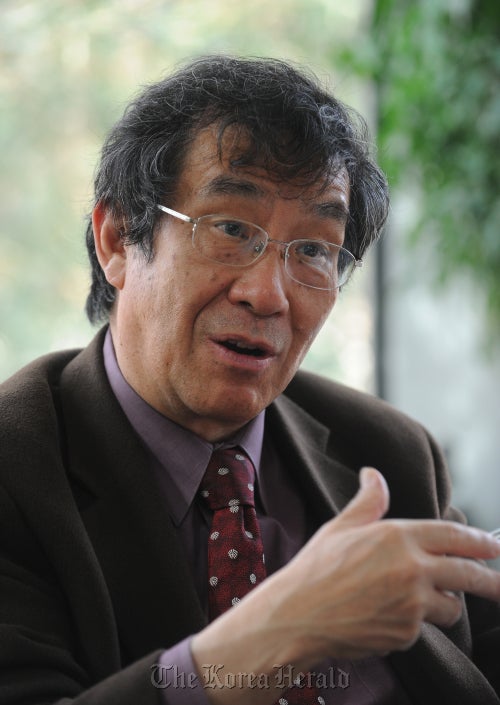
Professor Tu Weiming
Director of the Institute for
Advanced Humanistic Studies
Chair Professor of Philosophy at Peking University
Professor TU is currently the Director of the Institute for Advanced Humanistic Studies and Chair Professor of Philosophy at Peking University. He was Director of the Harvard-Yenching Institute and Director of the Institute of Culture and Communication at the East-West Center in Hawaii (1990–1991) and he is a fellow of the American Academy of Arts and Sciences. Professor TU was born in Kunming, Yunnan Province, in Mainland China. He obtained his B.A. (1961) in Chinese Studies at Tunghai University in Taiwan and earned his M.A. (1963) in Regional Studies (East Asia) and Ph.D. (1968) in History and East Asian Languages at Harvard University. Professor TU taught at Princeton University (1968–1971) and at the University of California, Berkeley (1971–1981) and has been on the Harvard faculty since 1981. In 1988, Professor TU was one of many asked by Life Magazine to give their impressions on “The Meaning of Life.” Professor TU Weiming’s response could be one of the most accessible about New Confucianism for the layman. Professor TU was a visiting professor at Peking University, the University of Paris, and several others. He holds honorary professorships from several universities and has been awarded honorary degrees by Lehigh University, Michigan State University, and Shandong University. Professor TU was appointed by Kofi Annan as a member of the United Nations Group of Eminent Persons to facilitate the “Dialogue among Civilizations” in 2001. He was also one of the eight Confucian intellectuals who were invited by the Singapore Government to develop the “Confucian Ethics” school curriculum.
Abstract
Spiritual Humanism and Global Citizenship
In light of cultural diversity as an unstoppable trend throughout the world, philosophy as an academic discipline is compelled to go through an unprecedented challenge of globalization. Both personal and professional identities of philosophy are in crisis. A new communal and critical self-consciousness of historians of philosophy in the 21st century is emerging. Professor TU will offer spiritual humanism and global citizenship as a point of departure for rethinking the history of philosophy.
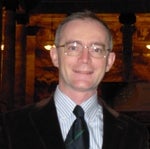
Professor Riccardo Pozzo
Professor & Director, Department of Social Sciences and Humanities Cultural Heritage of the National Research Council of Italy
Professor Riccardo Pozzo received his M.A. at Università di Milano in 1983, his Ph.D. at Universität des Saarlandes in 1988, and his Habilitation at Universität Trier in 1995. In 1996 he went to the U.S. to teach German Philosophy at the School of Philosophy of the Catholic University of America. In 2003 he came back to Italy to Chair the History of Philosophy at the Università di Verona. From 2009 to 2012 he was the Director of the Institute for the European Intellectual Lexicon and History of Ideas of CNR. Since 2013 he is the Director of the Department of Humanities and Social Sciences, Cultural Heritage of CNR. Order of Merit of the Federal Republic of Germany on the ribbon. He was elected a member of the Institut International de Philosophie. He currently serves as a member of the H2020 Programme Committee Configuration Research Infrastructures and of the Scientific Review Group for the Humanities of ESF as well as chair of the World Congress of Philosophy Beijing 2018 program committee. He has published monographs on the Renaissance (Schwabe, 2012), the Enlightenment (Frommann-Holzboog, 2000), Kant (Akal, 1998; Lang 1989), and Hegel (La Nuova Italia, 1989). He has edited and co-edited the proceedings of the 36th Congresso Italiano di Filosofia (Mimesis, 2009) and recently a miscellany on Kant on the Unconscious (DeGruyter, 2012) as well as volumes on Dilthey and the methodology of the history of ideas (Meiner, 2010; Harrassowitz, 2011; Frommann-Holzboog, 2011) and several others. He has published in the following journals: Ave Maria Law Review, Archiv für Begriffsgeschichte, American Catholic Philosophical Quarterly, Berichte zur Wissenschaftsgeschichte, Giornale critico della filosofia italiana, Hegel-Jahrbuch, History of Science, History of Universities, Intersezioni, Isis, Jahrbuch für Universitätsgeschichte, Journal of the History of Philosophy, Kant-Studien, Medioevo, Philosophical News, Quaestio, Review of Metaphysics, Rivista di storia della filosofia, Studi Kantiani, and Topoi.
Abstract
Cultural Innovation for a Reflective Society
The success of an intercultural history of philosophy is measured by its effectiveness in establishing continuities and interactions of cultural traditions—transcriptions, interpretations, and translations of texts into new contexts. We are talking about locating philosophy as a province within the intercultural realm. It is time to move beyond mere passive acceptance of the fact of multiple cultures effectively exist in a society (inclusive society) and to promote cultural diversity and intercultural dialogue (reflective society). In fact, intellectual history and philosophy hardly talk to each other. Diverse methodological approaches, very little literature in common, and diverse even the footnotes. The subjects are nonetheless the same ones: thought and its history. Looking for an intercultural model for the history of philosophy begins with a critical consideration of this nonspeaking. Historians of philosophy have pointed out that it is necessary for philosophy to continuously look for assurances. In other words, it is part of the mission of philosophy to constantly renew the issues it works on and the methods it works with. Intellectual history frequently involves a close reconstruction of philosophical arguments as they have been recorded in texts during the centuries of their historical transmission. In this sense, intellectual history bears a strong resemblance to the history of philosophy. But intellectual history remains importantly distinct from the history of philosophy for the simple reason that philosophers tend to disregard cultural diversity so as to count almost exclusively upon the internal coherence of philosophical arguments themselves. It is clear, then, that the twenty-first-century history of philosophy can be usefully reinvented on the basis of development towards intercultural dialogue.
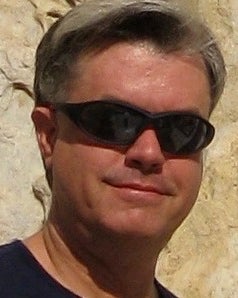
Professor William Blattner
Professor, Department of Philosophy
Georgetown University
Professor William Blattner’s principal scholarly interests lie in modern German philosophy, esp. Heidegger, Phenomenology, and Kant. He also teaches existentialism and the philosophy of history. He is the author of two books, Heidegger’s Temporal Idealism (Cambridge, 1999) and Heidegger’s “Being and Time”: A Reader’s Guide (Continuum/Bloomsbury, 2006). He studied philosophy as an undergraduate at UC Berkeley and graduated in 1983. While at Berkeley he studied Heidegger with Hubert Dreyfus. He received his Ph.D. in Philosophy in 1989 from the University of Pittsburgh, where he wrote a doctoral thesis on the philosophy of time in Heidegger and Kant, which was directed by the late John Haugeland. The graduate program at Pitt was steeped in a commitment to understanding the history of philosophy and approaching contemporary philosophical problems with an eye to their historical provenance. This attitude was embodied most clearly and productively in the thought and teaching of Wilfrid Sellars, Prof. Blattner attended several courses taught by Wilfrid Sellars who had an extraordinary influence on his thinking. His primary international engagement has been with Germany, initially as a Humboldt-Foundation fellow at the Eberhard-Karls Universität Tübingen during the 1997–98 academic year. He has since returned to Germany to deliver lectures at the University of Heidelberg. Prof. Blattner is currently the director of the International Society for Phenomenological Studies and will become the chair of the Philosophy Department at Georgetown University in July 2015.
Abstract
The Fusion of Horizons, History of Philosophy, and International Engagement
Wilfrid Sellars suggested that the history of philosophy is the lingua franca of philosophy, and Hans-Georg Gadamer proposed that the understanding of the history of philosophy is accomplished through the “fusion of the horizons” of understanding brought to bear by a historian of philosophy and his or her object of study. Prof. Blattner will draw upon the work of the historian of science, Peter Galison, to argue that both of these metaphors, at least as deployed by Sellars and Gadamer, are fundamentally misleading. What an enhanced understanding of the history of philosophy requires is a concrete dialog among philosophers in which an “interactional” language develops allowing cross-cultural understanding to emerge in the “trading posts” of international meetings, such as the coming World Congress of Philosophy in Beijing.
A Sustainable & Healthy Lifestyle: from Challenges to Innovations
Monday, April 27, 2015, at 5:30 p.m.
Intercultural Center Auditorium
Georgetown University
To coincide with the 2015 Milano EXPO, “Feeding the Planet, Energy for Life,” the Georgetown University Italian Research Institute, in collaboration with the Embassy of Italy in Washington, D.C., is sponsoring a symposium addressing critical global and human issues from climate changes, population growth, health, and food production.
The speakers will discuss from historical, bio-medical, and socio-political perspectives the challenges inherent in sustaining a healthy lifestyle. Topics include climate changes, agricultural systems, energy resources, population growth, policies, and innovative strategies that will require international and local support.

Prof. Joel E. Cohen
Abby Rockefeller Mauzé Professor of Populations and Head of the Laboratory of Populations at the Rockefeller University and Columbia University
Joel E. Cohen is the Abby Rockefeller Mauzé Professor of Populations and head of the Laboratory of Populations at Rockefeller University and Columbia University. He studies the demography, ecology, and epidemiology of human and non-human populations. He has written for the New York Times, Wall Street Journal, Project Syndicate, Discover, Scientific American, and New York Review of Books. His video introduction to demography, https://www.youtube.com/watch?v=2vr44C_G0-o, has been viewed more than 100,000 times. He has published 14 books (4 as sole author, 4 co-authored, 5 edited, and one translated) and more than 400 articles and chapters. His trade books include: How Many People Can the Earth Support? (W. W. Norton 1995) and a book of scientific and mathematical jokes, Absolute Zero Gravity (Simon & Schuster 1992). Cohen earned two doctorates in applied mathematics and population sciences from Harvard University. He was elected to the American Academy of Arts and Sciences, the American Philosophical Society, and the U.S. National Academy of Sciences.
Abstract
The Human Population, Food, and Hunger
The world’s human population roughly quadrupled from 1.8 billion in 1915 to 7.2 billion in 2015. About one person in eight is chronically hungry. In developing countries, one child in three is stunted from chronic hunger. Meanwhile, about one adult (18+ years old) in eight is obese, and the world currently grows enough cereal grains to feed 10 billion to 12 billion people. How can we understand widespread hunger in a world with enough food for everyone? Looking forward, unprecedented changes await cities, aging, migration, and families. What are the prospects for feeding well the 9 billion to 13 billion people expected to be living in 2100? The answers depend on education, agricultural research, technology, economics, the big uncertainties of climate change, and human values. Our choices now will affect people for the rest of the century.
Related Links
- First annual Malthus Lecture, Population Reference Bureau and International Food Policy Research Institute, Washington, DC
Video link: https://www.youtube.com/watch?v=2vr44C_G0-o
Video link: http://www.youtube.com/watch?v=gmALGtDTQWo

Prof. Roberto Reali
Director of the National Research Council (CNR) Expo, University of Rome, La Sapienza
Professor Roberto Reali received his degree in Philosophy at the University of Rome, La Sapienza, a Master in engineering enterprises, at the University of Rome, Tor Vergata, and a Ph.D. in European History, at the University of Rome, La Sapienza. He is a technologist at the Council of National Research (CNR) for projects and organizational integration, planning, and implementation of research activities. He is also Project Manager for CNR “Cultural Landscape” and Project Manager for the Interdepartmental Project CNR for EXPO.
Abstract
The Role of Food Safety in the Globalized Food Era
The issue of food safety and food-borne risk is gaining widespread public attention. Building and maintaining the confidence of the various stakeholders in food safety systems entails the need to explain clearly the role of food safety in policy development. There is a broad international consensus that food safety standards and related guidelines must have their basis in science. It is also evident, however, that risk analysis, and especially risk management, require that numerous subjective and value-laden factors be considered in determining the appropriate level of protection to guide the choice related to the optimal risk-management solution.
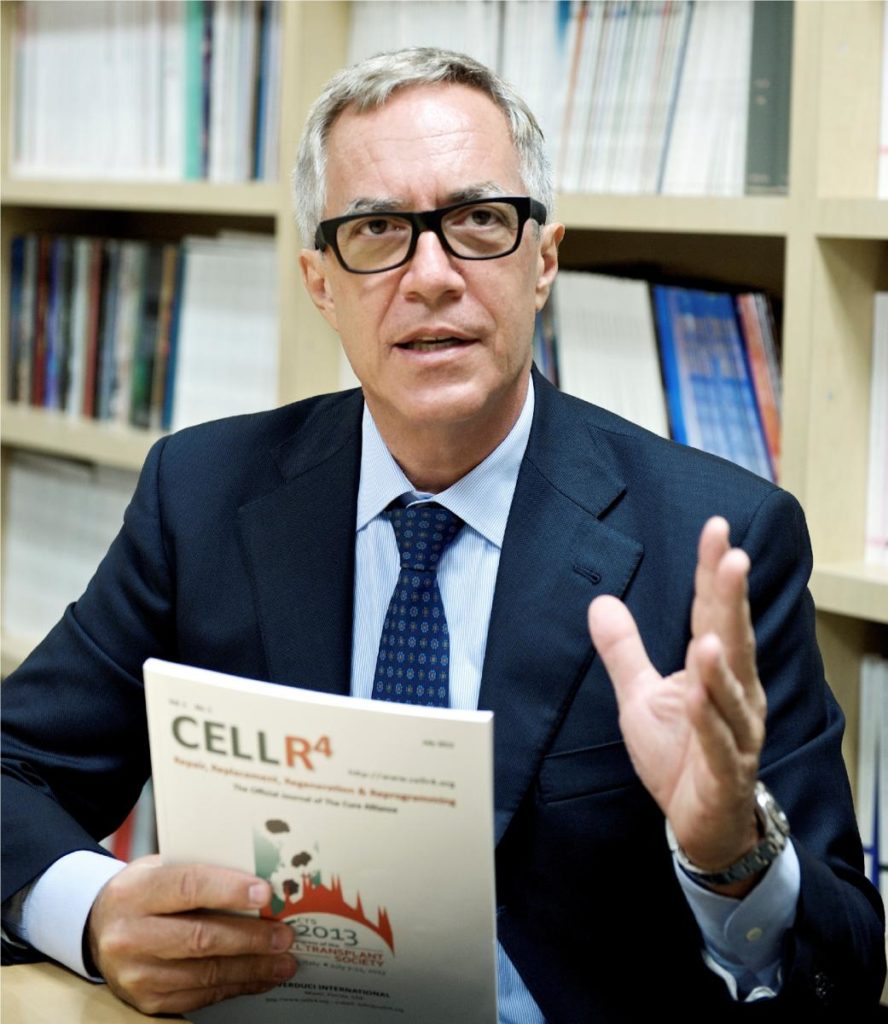
Dr. Camillo Ricordi
Professor of Surgery and Director of the Diabetes Research Institute and the Cell Transplant Program, University of Miami
Dr. Camillo Ricordi is a Professor of Surgery and Director of the Diabetes Research Institute and the Cell Transplant Program at the University of Miami. Dr. Ricordi and collaborators developed the method for large-scale production of human pancreatic islets, and he led the team that performed the first series of successful clinical islet allotransplants to reverse diabetes. Recognized by his peers as an expert in human cell processing, characterization, and transplantation, Dr. Ricordi was president of the Cell Transplant Society and served on the FDA Biologic Response Modifiers Advisory Committee and the NIH Expert Panel and Strategic Planning Committees. He is currently serving as Chairperson of the NIH Clinical Islet Transplantation Consortium, which standardized cell manufacturing protocols in North America and Europe and just completed the first multicenter FDA Phase III trial for what could become the first biologically active cell product approved in the US by the FDA. Dr. Ricordi has received numerous honors and awards and was also Knighted by the President of the Republic of Italy. He is currently serving on the editorial boards of CellR4 and Cell Transplantation. In 2013 he was appointed President of the Ri.MED Foundation by the Italian Prime Minister, one of the largest European investments in Biomedical Research, Biotechnologies, and Regenerative Medicine. Dr. Ricordi also serves as President of The Cure Alliance and Chairman of the Diabetes Research Institute Federation. He has authored over 700 scientific publications and 22 awarded patents.
Abstract
Addressing Urgent Challenges that Affect the Planet and Humankind: The Milan Protocol on Food and Nutrition
The Barilla Center for Food and Nutrition (BCFN) Foundation, with the contribution of numerous experts from all over the world (scientists, economists, politicians, environmentalists, and sociologists), in recent years, has studied the great challenges and food paradoxes of our time, namely:
- In the 21st century, with more than 900 million people who do not have access to food, there are almost twice as many who are overweight or obese, a real pandemic. 36 Million people die each year because they do not have access to food whereas 30 million people die each year from disease conditions related to food excess and bad nutritional habits.
- 900 million people are malnourished while 33% of cereal production is used to feed almost 5 billion livestock and 7% of the production of cereals in the world is used for the production of biofuels.
- This Planet produces enough food or calories to feed at least 4 times the 900 million malnourished people. Unfortunately, one-third of the food produced will never arrive on our tables (food waste).
Today with our current lifestyles and behaviors we are consuming the natural resources of one and a half planets. If we continue at this pace, when we’ll have to feed 9 billion people in 2050, we will need the resources of 3 Planets. And of course, this is neither possible nor sustainable. For the first time, EXPO 2015 will focus on “Feeding the Planet, Energy for Life”, clearly and powerfully placing the topic of food at the center of the agenda.
The BCFN Foundation has proposed a protocol known as the Milan Protocol, which in addition to recalling the dilemmas outlined above, also indicates precise guidelines and objectives to be achieved in the years to come. The Italian Government has announced that during EXPO 2015 a policy-making document will be presented, the Milan Charter, which starts from the Milan Protocol, will further elaborate on the same issues and will aim to get the largest possible consensus and support. On October 16, 2015 (World Food Day), the Milan Charter will be handed over to the Secretary General of the United Nations.
The World of Dante: Between Science and Poetry
A Recital by Riccardo Pratesi
Wednesday, April 15 at 6:30 p.m.
Auditorium, Embassy of Italy
3000 Whitehaven St., NW
Washington, DC 20008
To celebrate the 750th anniversary of Dante’s birth the Georgetown University Italian Research Institute, the Georgetown University Italian Department, and the Embassy of Italy, are sponsoring a recital of Dante’s Divine Comedy, The choice of cantos will highlight Dante’s rich relationship with the scientific culture of his age.
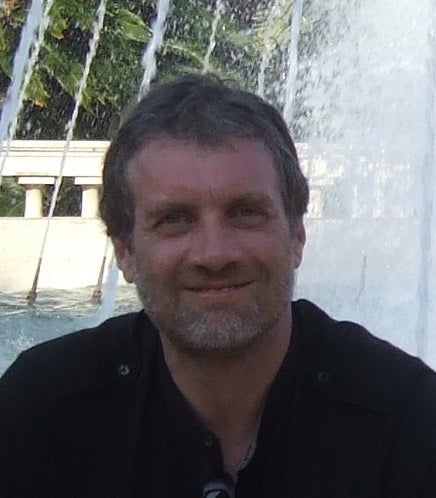
Riccardo Pratesi
Riccardo Pratesi was born in Florence, Italy, in 1965. He has a degree in Physics from the University of Florence and is currently completing a Ph.D. in History of Science at the University of Pisa. He works at the Museo Galileo, the National Institute, and at the Museum of History of Science of Florence, concentrating on didactic and educational activities. A scholar of the Divine Comedy he is the author of “Galileo Galilei: Two Lectures at the Florentine Academy on the Figure, Site & Greatness of Dante’s Inferno.” Pratesi is a gifted individual endowed with a photographic memory who, on many occasions is invited to recite Cantos from the Divine Comedy. He has given recitals at the Società Dantesca Italiana in Florence and at the “Settembre Dantesco” in Ravenna.
The World of Dante: between Science and Poetry
Inferno XXXIV
Dante’s Earth and the subterranean world; why the Earth is as it is.
Paradiso XXVIII
Can Dante’s Paradise resemble the “curved universe” of Einstein’s general theory of relativity?
Family Business & Entrepreneurship: Successes & Challenges
Friday, April 10, 2015, at 6:00 p.m.
Intercultural Center Auditorium
Georgetown University
The Italian Institute, in collaboration with the Italian Embassy, is sponsoring a symposium and round table discussion on family businesses, a valued tradition in Italian business entrepreneurship, and the “Made in Italy” brand.
The panelists, representing different sectors of Italian and non-Italian family businesses will discuss topics related to the successes and the challenges of a family business. These topics include entrepreneurship, leadership, management, creativity, innovation, strong work ethics, private versus public, growth as well as the complex factor of succession and interpersonal relations.
Speakers
Paolo Zegna
Chairman, Ermenegildo Zegna
Paolo Zegna was born in Turin, Italy. He holds a Degree in Economics and Social Sciences from the University of Geneva (Switzerland). Over the years Paolo Zegna has covered various key positions in the company since joining the Ermenegildo Zegna Group in 1981. From 1989 until today, Mr. Zegna has served on the Board of Directors of Ermenegildo Zegna Holditalia S.p.A. and was appointed Chairman in December 2006. In addition to his duties within the Ermenegildo Zegna Group, Paolo Zegna currently serves as Vice-President of Altagamma, the Association of Italian Luxury Brands. He has also been a member of the Board of Directors of Confindustria (the Italian Industrial Confederation) and the Florence Center for Italian Fashion. He has held Presidential positions at the Italian Fashion System, Milano Unica (the Italian Textile Fair), and Idea Biella.
Abstract
Ermenegildo Zegna a Century Old Family Business: From Market Evolutions to Family Succession
A family business that wants to stay in the market must possess all the necessary qualities to compete. It must have clarity, courage, a vision, and the desire to be continuously tested in every aspect and adapt with great speed to the changes imposed by the market. It needs the best team of professionals that can look to the future whether it is led by family members or managers from the outside. Entrepreneurship must engage everyone with courage and discipline to gain the right spot in its own market, day after day, generation after generation. The family must always remember that, in essence, a family business, like any other business, does not only belong to the family, but to the society in which it operates. It must assume responsibility and ensure the best possible governance for a continuous mutual benefit targeted to future continuity.
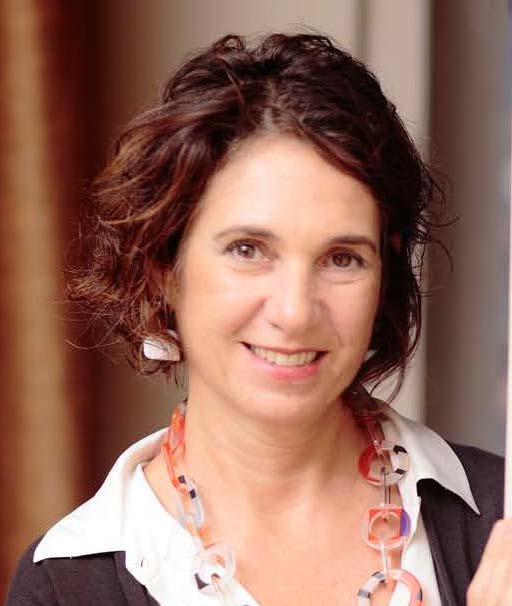
Marchesa Tiziana Frescobaldi
Head of Communications, Marchesi de’Frescobaldi
As a member of the 30th generation of the family, Tiziana Frescobaldi accepted a full-time position with Marchesi de’ Frescobaldi, the family business, in 1993 and is a member of the Board of the Compagnia de’ Frescobaldi. Since 1996 she has served as Director of Communications at the Frescobaldi Group and is responsible for corporate image and press relations, as well as for coordinating public relations. She is currently involved in a cultural initiative, the “Artists for the Frescobaldi Prize Award” and serves both as its Director and is responsible for communications. Following her University degree, in Modern Liberal Arts in 1991, at the University of Rome, “La Sapienza”, she entered journalism and public relations. As a professional journalist, she contributes to several publications and teaches corporate communication to graduate students. She is deeply committed to cultural activities in the city of Florence, through the Cultural Association “Florence, Hidden City” which she founded.
Abstract
The Frescobaldi Family: Continuity, Innovation & Growth
The Frescobaldi family history and wine industry span over 700 years. The family settled in Florence, Tuscany, in the early middle ages and still lives in the same palazzo. Tuscany ranks high in red wine production and the Frescobaldi family has distinguished itself for its courage and wisdom in approaches to high-quality winemaking throughout the years. The task of the 30th generation is to continue to preserve the past while looking toward the future. Marchesa Frescobaldi will discuss the path of the Frescobaldi family wine industry, its growth, business management, future perspectives, and family continuity. The Frescobaldi name inspires the Italian elegant taste and the objective of the next generation is to sustain the reputation of the family and the Frescobaldi brand.
John Hadjipateras
Chairman/CEO of Dorian LPG Ltd.
John Hadjipateras has served as the Chairman of the Board and Chief Executive Officer of Dorian LPG Ltd. since its inception in July 2013. He has been actively involved in the management of shipping companies since 1972. From 1972 to 1992, Mr. Hadjipateras was the Managing Director of Peninsular Maritime Ltd., in London and subsequently served as President of Eagle Ocean Transport Inc. in Stamford Connecticut. From 2000 to 2013 he was also a Director of SEACOR Holdings Inc., a global provider of marine transportation equipment and logistics services. He has served as a member of the board of the Greek Shipping Cooperation Committee, of the Council of Intertanko, and has been a member of the Baltic Exchange since 1972 and of the American Bureau of Shipping since 2007. He also served on the Board of Advisors of the Faculty of Languages and Linguistics of Georgetown University and is a trustee of Kidscape, a leading U.K. charity organization.
Abstract
Family Values in a Public Company
Mr. Hadjipateras will discuss the transition from a family to a publicly held company. To ensure its growth and to benefit the shareholders it is critical to maintaining those values which contributed to the family business’s success.
